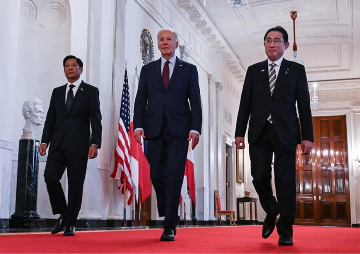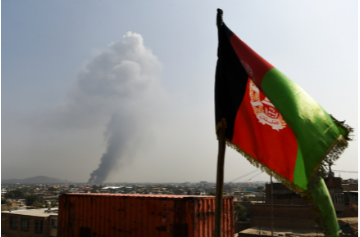“Brexit was a hard one” summed up Prof. Monaghan of the Hull University at a round table discussion organised at Observer Research Foundation, Kolkata on 20 January 2017 themed on “Emerging Trends in World Politics”.
Setting the tone of the discussion, Professor Suranjan Das, Vice Chancellor, Jadavpur University, said that the world was going through a difficult transition. He pointed out how action of one country had spill over on others and how global politics stood inter-related and cross-cut. He pointed out how globalisation accentuated inequality both within and between the countries of global South or how development made climate change a pressing concern. He also felt China’s rise had impacted maritime economy. Das expressed his apprehensions about the new US Presidential incumbent Donald Trump’s take on the ongoing issues and especially his measured silence on human rights violations.
Professor E. Monaghan of the University of Hull analysed Theresa May’s speech on Brexit delivered on 17 January 2017 to identify possible pathways for Britain after exit from the European Union. She mentioned May’s decision to create a department of international trade which was non-existent in UK’s government structure so far. As stated by May, the principal reason for leaving the custom’s union was the fact that remaining a member would mean being subject to Common Market laws as well as coming under the jurisdiction of European Court of Justice. However, the new agreement would include certain free trade arrangement with European markets. The immigration issue was also vital: the European Court of Human Rights has a particular ruling which prevents people from being deported. This ruling would make controlling immigration difficult for UK as a EU member. Monaghan felt that although it could sound inward looking but the tone of May’s speech was very much international. According to her, May laid out in great length how UK intends to develop an international identity with its rich European heritage. Monaghan was of the view that remaining in Custom’s Union could make Brexit softer but this would inevitably stir up discontent in Northern Ireland over tariff, passport and such other border transit issues.
Professor Caroline Kennedy-Pipe, the leader of the delegation from the University of Hull titled her talk: `Great Powers after Brexit'. As a military history scholar, she analyzed Brexit and its implication for the military in UK. Introducing her theme, Kennedy-Pipe singled out the military as the unifying factor of the four kingdoms of the UK. According to her, Brexit has been to some extent a military choice.She added that Scotland holds major nuclear capabilities and houses skilled workforce for it. There is a vibrant scientific community in Scotland which wants to pre-empt the possibility of any Arctic war and intends to use science as a soft power tool. To this end, Brexit served the purpose. Vladimir Putin, the Russian President, along with his American counterpart, Trump will possibly leave deep impact on the future of world politics.There is widespread concern in the UK over heavy Russian presence over European air space. Russian investment in military drones and cyber tools has emerged as a major threat to the UK. The UK on the other hand believes in maintaining a small ground force. However, with changed security scenario, Brexit and recalibration is deemed necessary on the part of the UK, summed up Kennedy-Pipe.
James Connelly, faculty member at the University of Hull, presented “Some Reflections on Leadership in International Climate Change Policy”. He talked about four possible types of leadership in the arena of climate change viz. Structural leadership, entrepreneurial leadership, cognitive leadership and exemplary leadership. Connelly also suggested two styles of leadership, namely, humdrum or transactional and transformational leadership. In this context hemade references to India’s energy needs and her approach to climate change.
Professor Marukh Doctor from the same university spoke on “Brazilian Foreign Policy: Negotiating Strategies and Graduation Dilemmas”. Doctor stated that Brazil was a precursor to the idea of society having a say in foreign policy. Beginning in the 1980s, democratisation and stabilisation of Brazilian economy led to the debate on whether foreign policy was any different from other public policies and could foreign policy be justifiably restricted to nation’s elites only. Latin America’s reaction to the Washington Consensus was an example of the germination of this idea in Brazil. Brazil is one such country that has relatively done better in recent times when it comes to distribution of income and reducing inequality. Brazil is also committed to a policy of autonomy i.e. has a flexible foreign policy. Doctor held that Brazil’s negotiating strategies and graduation dilemmas can be lessons for India.
The talk was followed by discussion. Important interventions came from the audience related to the salient issues raised by the delegates from the University of Hull.
This report is prepared by Swagata Saha, Observer Research Foundation, Kolkata.
The views expressed above belong to the author(s). ORF research and analyses now available on Telegram! Click here to access our curated content — blogs, longforms and interviews.




 PREV
PREV

